Report of a Master of Wine exam
by Daniela Shelton
 Het Institute of Master of Wine publiceerde dit jaar de vragen van het tweede jaars examen. Vanuit de veilige bureaustoel leken deze vragen in principe te doen. Vier dagen daarentegen hebben de examinanten zitten ploeteren. Lees en huiver in het hier na volgende verslag van Daniela Shelton over hoe een examen voor een Master of Wine er in de praktijk uit ziet. Het woord – in English – is aan Daniela Shelton: Ever wondered what it is like to take the Master of Wine exam?
Het Institute of Master of Wine publiceerde dit jaar de vragen van het tweede jaars examen. Vanuit de veilige bureaustoel leken deze vragen in principe te doen. Vier dagen daarentegen hebben de examinanten zitten ploeteren. Lees en huiver in het hier na volgende verslag van Daniela Shelton over hoe een examen voor een Master of Wine er in de praktijk uit ziet. Het woord – in English – is aan Daniela Shelton: Ever wondered what it is like to take the Master of Wine exam?
Notoriously one of the most demanding exams in the wine world consisting of three flights of 12 wines tasted blind and 11 theory papers all over four days. It has been two weeks since I attempted this challenge in London but the feeling is still very much fresh and racing through my mind. There is not a day that I am not asked what it was like and how I did. So here it goes.
The first day of this exam marathon is about to start and we (the candidates) stand nervously around waiting to be shown to our tables. Barely a word is spoken. The hall is filled with the future crème de la crème of the wine trade but anxious smiles and tense breathing belie that. Never mind how well prepared we are or how talented we may be, there is a palpable air of barely concealed panic.
We are all aware of the hopeless statistics of acing this exam. There is less than 10% pass rate on the tasting, the theory shows touch more success. Some people are more natural in blind tasting and others are more comfortable writing structured essays but I believe that anyone can learn both skills. I guess if I didn’t I wouldn’t be here. Sitting at the end of the well-lit but rather soulless industrial room, I have a view of all 40-odd candidates. The overwhelming thoughts of who will be the lucky one this year come to my mind. This is our time to shine but all I can do at this point is breathe in shallow gulps and try and force some positive thoughts.
It seems like a century before we can start pouring our wines and then we are off like racing greyhounds. The wines are cold at first (Paper 1 is always whites) so you hold on to the glasses with your palms as if your life depended on it. I sniff all wines first and quickly assess what they could be. No grids for me. One thing I have learned is that the first initial judgement is usually the best and most accurate.
In order to calm my nerves I start with the flight of questions that I am most comfortable with. This time we were blessed with four lovely Rieslings that were instantly recognisable. Tasty too. A couple of swallows to build some courage, the heart rate starts to slow down and a hint of welcome relief follows. Before you know it we are asked to stop writing and put our pens down.
No doubt if I had more time, this would be so much easier but this exam is about the skill of wine knowledge as much as decision making and fast writing. There are 300 marks to be had and to pass you need to get at least 195 marks. You have a minute or two to decide what each wine is and then spend the rest of the time justifying your decisions on region, grape variety, quality, age, commercial potential, winemaking etc.
Fresh air tastes so good after the first exam I tell you, even with all the traffic heading towards Blackfriars Bridge. A quick cup of tea and a bite to eat and we are back in our seats getting ready for the first theory paper. It’s simple – you have 3 hours to write 3 essays that will be marked with equal importance. This is where true geeks shine.
This year the questions were tough but pretty fair – from management of the vineyard through quality control procedures to brand building and wine industry legislation. They are designed to test our breadth of knowledge but some were very specific so you really needed to be confident about the subject before answering. Choosing the right question is always crucial.
The biggest challenge here is the timing. Three hours may sound like a long time. In that time you could run a marathon if you were fast or half marathon if you were slow. But to write three academically structured essays filled with well-chosen global examples in a confident and critical manner is what gives this that punishing edge.
For the next two days you follow the same format. The pressure and stress lessens somewhat but the fatigue and lack of sleep start to play their toll. On the fourth day, we are allowed to show off our personality tackling more contemporary issues. The final whistle went off just after midday on Saturday, followed by generous helpings of Bollinger.
And how did I do? Well we will find out in September!





